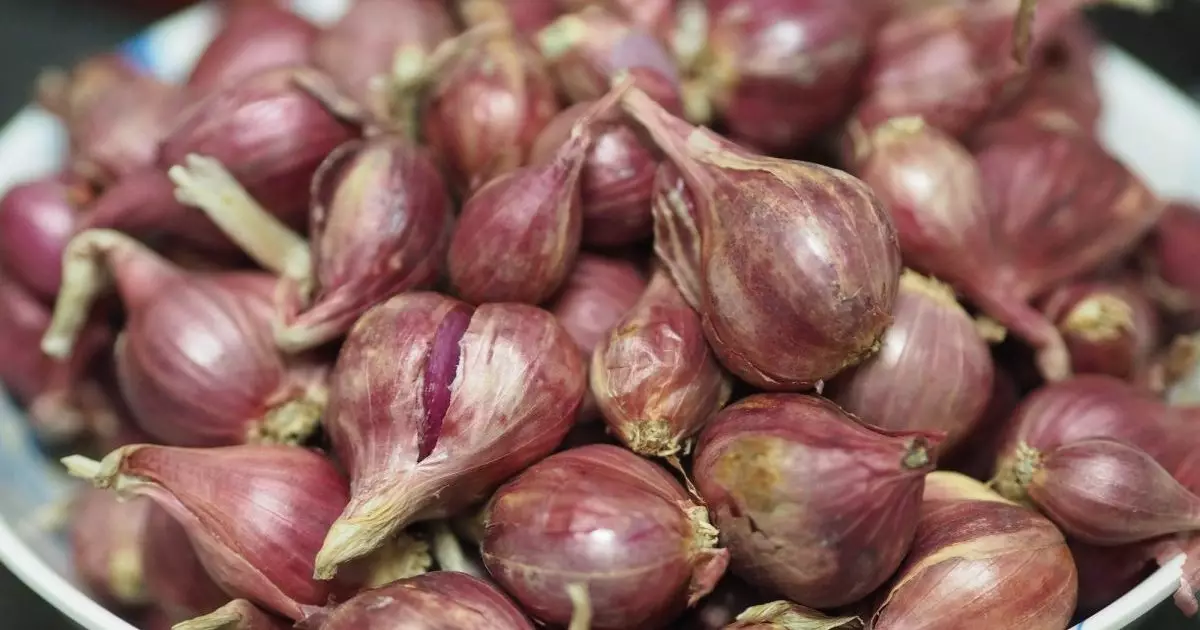As dog owners, we often find ourselves sharing culinary delights with our canine companions. However, some seemingly innocuous ingredients can pose serious health risks. Shallots are one such food item that, while beloved by many, should never find their way into your dog’s bowl. Belonging to the Allium family—alongside onions, garlic, leeks, and chives—shallots are harmful to dogs, jeopardizing their health in significant ways. Their toxicity lies in specific compounds that create oxidative damage to red blood cells, leading to serious medical complications.
Understanding the Risks of Shallots
When consumed, shallots can cause a range of gastrointestinal issues in dogs, including nausea, vomiting, and severe abdominal pain. Although they might not seem like a substantial threat in small amounts, the cumulative effect can lead to anemia, characterized by lethargy, rapid breathing, and even a weak pulse. Early symptoms may go unnoticed, especially in larger breeds, making it crucial for dog owners to remain vigilant. One of the most troubling aspects of Allium toxicity is that symptoms may not appear immediately; it can take days for the effects to manifest, fooling pet owners into thinking their furry friends are in the clear.
Veterinary Insights: Always Seek Professional Advice
If your pup eats a few scraps of shallots, the initial reaction may be to brush off the incident. However, it’s essential to consult your veterinarian immediately, regardless of the quantity consumed. Larger breeds may handle small amounts better than smaller ones, but the underlying risk persists. The amount of shallots or any Allium-related food item can affect your dog differently based on existing health conditions, size, and age. Veterinary professionals are equipped to provide guidance and treatment options, making them a valuable resource for any concerned pet parent.
Identifying Symptoms of Toxicity
Being aware of the signs associated with Allium poisoning can save your dog’s life. Initial symptoms often include excessive drooling, lack of appetite, and diarrhea. Over time, if unchecked, these can exacerbate, leading to more severe consequences like abdominal distention and profound lethargy. Pet owners need to recognize that these symptoms don’t always manifest immediately, which is why close observation of their dog’s behavior after they’ve consumed any Allium is crucial. It’s a challenging responsibility, but vigilance can make a world of difference in your canine’s well-being.
Preventive Measures: Safeguarding Your Dog’s Health
One of the most effective ways to keep your dog safe from the dangers of shallots and similar foods is through proactive measures. Educating yourself and your family on which foods are harmful to dogs is essential. Make a habit of securing your pantry and kitchen spaces to keep Allium vegetables well out of reach. When cooking with shallots, consider preparing separate, dog-safe meals and make it a practice never to share your culinary creations that contain shallots or other Alliums. Being proactive can prevent dangerous situations from occurring and ensure your furry friend remains healthy and happy.
Emergency Response: What to Do if Your Dog Eats Shallots
Should the unfortunate happen and your dog consumes shallots, knowing the appropriate course of action can be lifesaving. In case of ingestion, immediate consultation with a veterinarian is paramount. They may recommend inducing vomiting or other medical interventions to minimize the effects of the toxin. Time is of the essence, so take swift action, especially if you suspect your dog has consumed a significant amount. Delaying medical attention could heighten the risks associated with Allium toxicity.
While shallots may bring joy to our dinner tables, they can be a silent threat lurking in our kitchens for our canine companions. Knowledge is power, and equipping yourself with information about these potentially toxic foods is the first step towards safeguarding your dog’s health.

